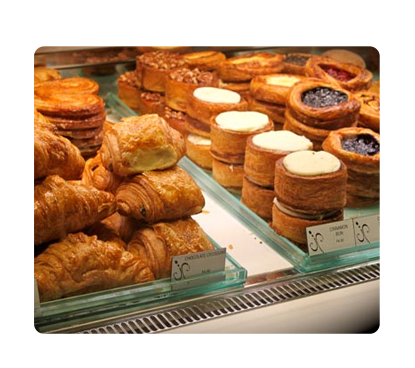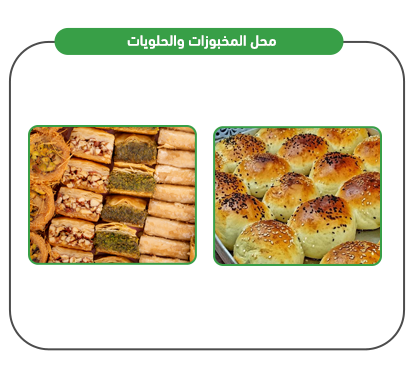It is a bakery and confectionery shop that produces baked goods and sweets using grains and flour made from wheat bran. It produces all types of bread, sweets, and their derivatives to satisfy the largest possible number of consumers.

It is a bakery and confectionery shop where the shop produces baked goods and sweets using grains and flour made from wheat bran. To produce all kinds of bread and sweets of all kinds and their derivatives in order to satisfy the largest possible number of consumers. The products are provided in the form of fresh, unpreserved products, as a shop is rented. The bakery and confectionery shop project targets many target sectors such as hotels, restaurants, embassies, fast food restaurants, supermarkets, sports clubs, police clubs, armed forces, security services, wedding and event halls, during festivals, women’s associations, and consumers who prefer to obtain these products fresh and directly from the producers to present them to their visitors during banquets. Consumers during family trips. Consumers during Eid al-Fitr and Eid al-Adha.



Using all types of healthy grains and flours made from wheat bran.
The bakery and sweets shop project offers fresh products.
Fresh products are produced without the use of preservatives, thus reducing the risks associated with preservatives, antioxidants, and additives.
The bakery and sweets shop project products are distinguished by their unique and distinctive taste.
Producing a variety of baked goods and sweets to satisfy all consumer tastes.
Technical study
Financial study
Organizational and administrative study
Technical study
Financial study
Organizational and administrative study

Service sector in GCC countries
According to the macroeconomic theory of sectors, the economy is divided into three main and large sectors: the first; – is the sector that is based on collecting raw materials and includes mining companies, timber companies, oil exploration companies, in addition to agricultural and fishing industries. The second sector; is the sector that depends on goods and their sale, such as: (car manufacturing, furniture, clothing trade… etc.). As for the third sector, known as the “services” sector; it is the sector responsible for providing and producing services, essentially relying on intangible things, such as: entertainment, health care, transportation, hospitality, restaurants, etc. This theory believes that the more advanced countries are, the more their economies are based on the third sector, unlike primitive countries, which rely mostly on the first sector (the United States of America, for example, the service sector constitutes 85% of its economy).
Kingdom of Saudi Arabia:
The State of Qatar:
Kuwait:
United Arab Emirates:
Sultanate of Oman:
Global Service Sector
The service sector is the major contributor to the world’s gross product; It alone accounts for more than three fifths of this output. The sector does not rely on the production of tangible goods such as automobile and furniture, but rather on the provision of intangible services such as banking, medical care, transportation, hospitality, leisure, etc. The value of the sector market was estimated in 2020 at USD 10,814.49 billion and rose to USD 11,780.11 billion in 2021. The market achieved a CAGR of 8.9%. After recovering from the effects of the coronavirus pandemic, global market experts expect the sector’s market to reach US $ 15683.84 billion by 2025, bringing the market to a CAGR of 7% in the coming years.
